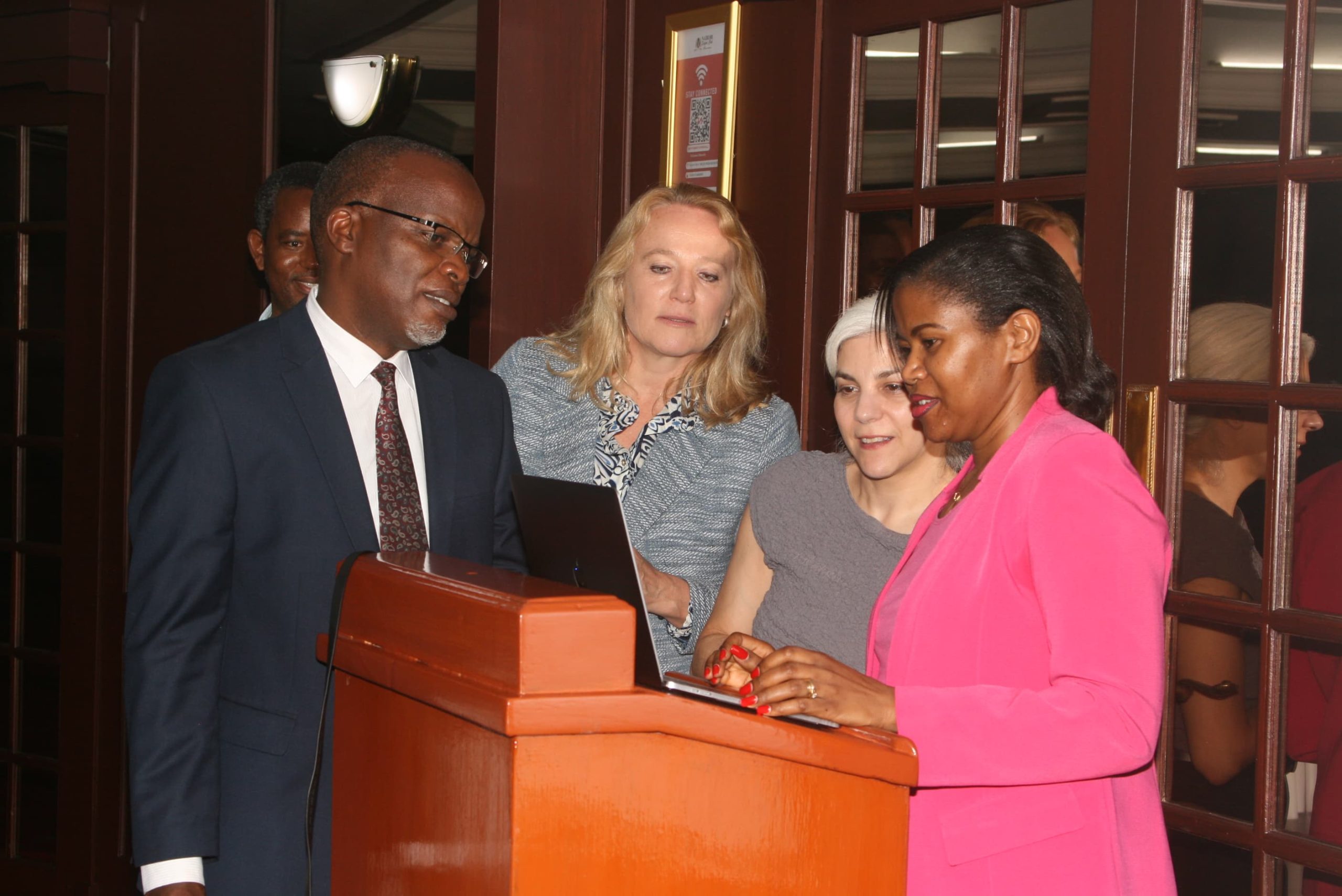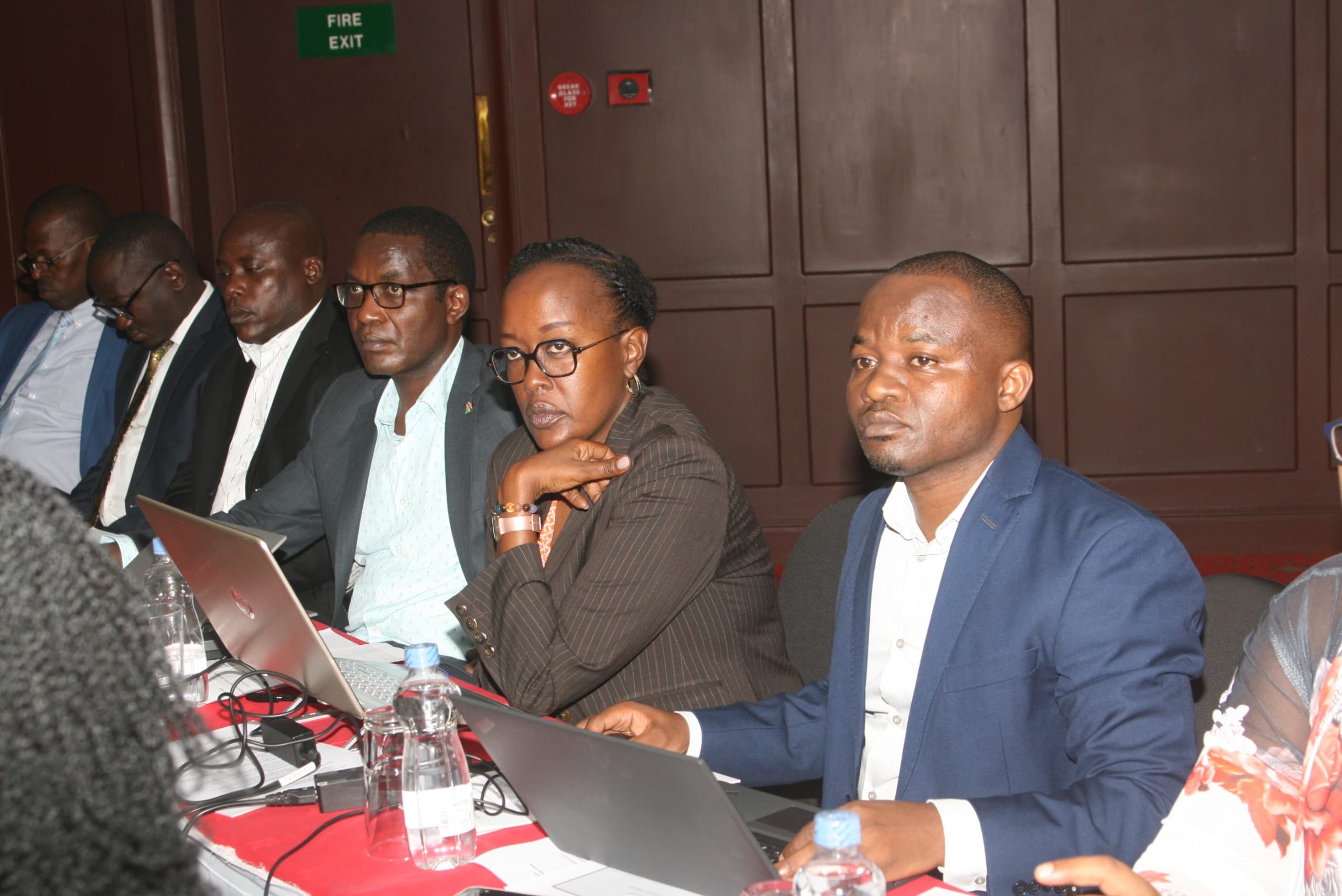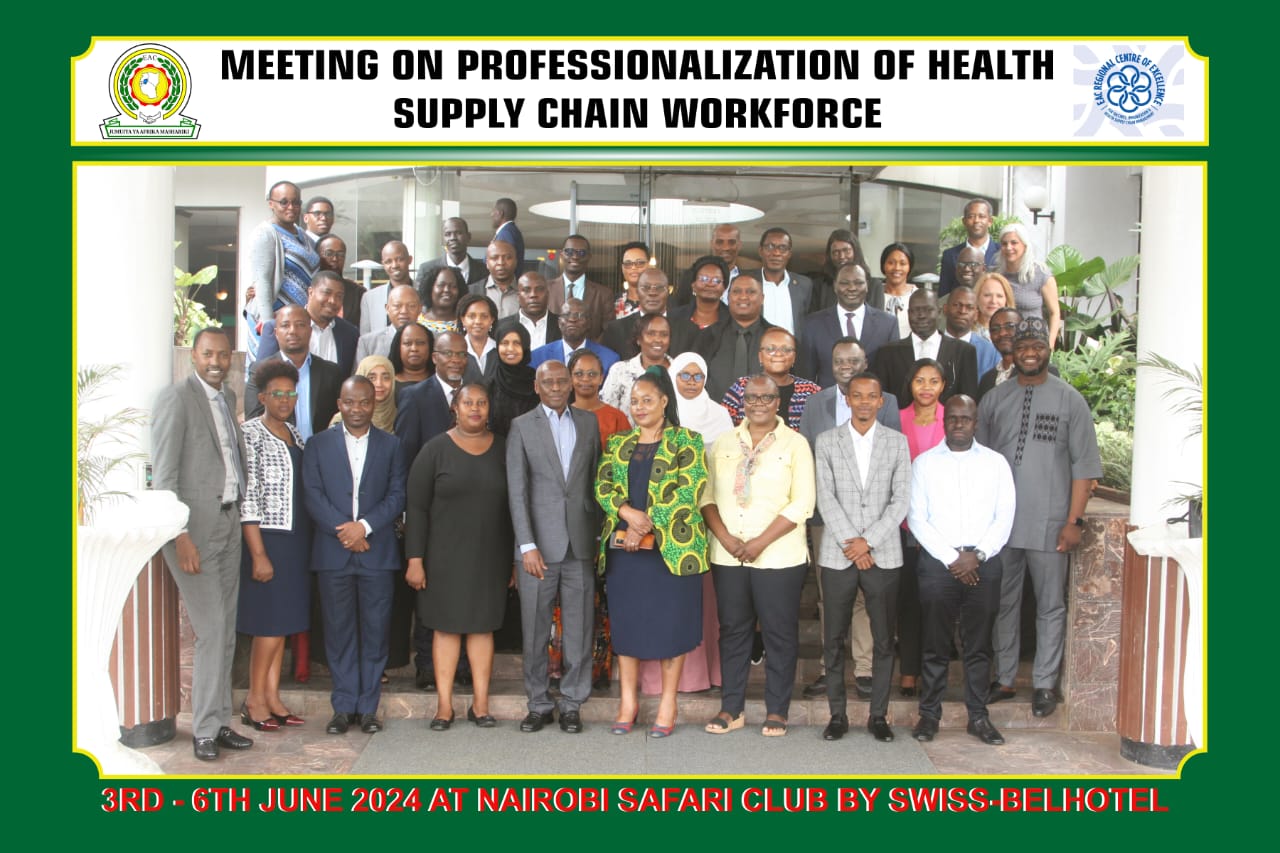From June 3-6, 2024, the EAC RCE-VIHSCM, in collaboration with the EAC Secretariat and People that Deliver, convened a workshop in Nairobi, Kenya, themed “Professionalization of the Health Supply Chain Workforce in the EAC Region.
The workshop aimed at developing a harmonized and detailed regional professionalization roadmap and reviewing the draft Terms of Reference (ToRs) for the proposed Taskforce to guide the creation of an EAC regional strategic framework on professionalizing the health supply chain workforce. This aligns with the EAC RCE-VIHSCM mandate of driving regional efforts to create a favorable environment for the professionalization of the health supply chain workforce and recognition of the profession for a robust and efficient health supply chain within the region.

Attending the meeting were experts from the EAC Partner States’ Ministries responsible for Health, officials from National/Central Medical Stores, Professional Bodies/Councils responsible for pharmaceutical policy and supply chain management, Ministries responsible for Public Service or Labour, and Ministries responsible for EAC Affairs, alongside academic institutions. Partner organizations including People that Deliver Coalition (PtD), Health Procurement Africa (CIPS/HPA), HELP Logistics Ltd, VillageReach, African Resource Center, InSupply Health, Pamela Steele Associates, Management Sciences for Health (MSH), Kenya Institute of Supplies Management (KISM), and USAID Global Health Supply Chain Program: Home (GHSC-PSM) also actively participated.
Dr. Stephen Karengera, Director of the RCE, highlighted the Centre’s ongoing efforts to advance professionalization. “The Centre has trained a critical mass of health supply chain professionals since 2015. It is thus imperative to take it to the next level by ensuring that the workforce is better organized to facilitate optimal operation,” he remarked.
This was also emphasised by Dr Eric Nzeyimana, the EAC Principal Health Officer, who underscored the importance of well-functioning health commodity supply chains as key to advancing national and regional health security goals. “Robust supply chains provide critical vaccines, medicines, diagnostics, and other essential health supplies to support communicable disease prevention, control, and response activities. Therefore, the region must ensure that the supply chain professionals are well equipped, properly organised and recognised in order to carryout out their roles optimally”, he noted.
A notable outcome of the meeting was the agreement to establish a Taskforce comprising experts from the EAC Partner States. This Taskforce will develop a regional strategic framework based on the People that Deliver professionalization model. Additionally, plans to establish a Community of Practice in health supply chain management are underway, underscoring the RCE’s dedication, alongside its partners, to advance professionalization efforts in the field.

